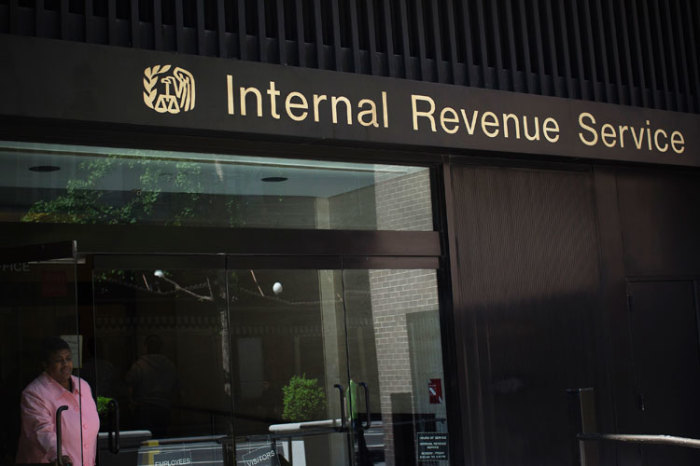IRS Would Lose in Court Battle Against Churches Over 'Pulpit Freedom,' Says NRB Head

Churches would win a case against the Internal Revenue Service if the government agency revokes their tax-exempt statuses for political speech, National Religious Broadcasters President Jerry Johnson predicted amid news that the IRS has agreed to investigate churches that engage in political talk.
"Let's just say theoretically that the IRS does revoke the 501(c)(3) status of some church because of political speech, let's just say that happens. I'm just certain that the church would, I hope, challenge that in the courts and it would go all the way to the Supreme Court," Johnson, who is a pastor and also heads an organization representing many non-profit media groups, told The Christian Post.
"I think right now it would be a 5-4 decision," added Johnson regarding a Supreme Court decision. "It's impossible to predict, but when you look at how this court, let's say in the Hobby Lobby case, when you look at how this court treats religious liberties and these kinds of issues, you got a count, a 5-4 decision. So right now the IRS would lose," he predicted.
In late July, FFRF revealed its "victory" after the IRS settled a lawsuit filed by the group after agreeing to investigate churches that it claims violate their tax-exempt status by engaging in political speech.
"This is a victory, and we're pleased with this development in which the IRS has proved to our satisfaction that it now has in place a protocol to enforce its own anti-electioneering provisions," FFRF Co-President Annie Laurie Gaylor had said in a statement.
Gaylor threatened that the group "could refile the suit if anti-electioneering provisions are not enforced in the future against rogue political churches."
In response, the NRB issued a statement last week saying it is concerned that the agreement could lead to "de facto government censorship of the pulpit."
During the interview, Johnson explained to CP why churches would "have a constitutional case" when it comes to keeping their tax-exempt status even if they engage in polticial speech. The NRB president believes that the Johnson Amendment – which changed the tax code to prohibit nonprofit organizations, including churches, from endorsing political candidates while exempt from federal income tax – runs contrary to the rights and protection given in the First Amendment.
"The First Amendment is very clear. Congress shall make no law respecting an establishment of religion, so we're not going to have a state church, we're not going to have a church state. That's very clear and that's OK. We would agree, I'm sure, with these atheists. But it goes on to say, nor prohibiting the free exercise of religion. So Congress can make no law prohibiting the free exercise of religion," he pointed out.
He contends that if the IRS were to enforce the 1954 law in any way, it would hinder pastors from exercising their faith.
"If they come into churches and say you can't talk about challenges, public policy. You can't talk about the way people live, you can't talk about marriage, you can't talk about abortion, you can't talk about war, you can't talk about business, well Christianity is about everything," Johnson argues. "So this idea that pulpit speech should be censored is just foreign to the First Amendment."
Alliance Defending Freedom Senior Legal Counsel Erik Stanley agreed. "We believe that the Johnson Amendment is blatantly unconstitutional; it needs to be struck down in federal court."
ADF is also paying close attention to the agreement struck between the tax agency and FFRF. In fact, the non-profit legal organization is filing a Freedom of Information Act request urging the IRS to make the modified procedures public. It expects the IRS to respond to the FOIA by September 11.
Stanley said ADF also hopes to bring a challenge to the Johnson Amendment through its project Pulpit Freedom Sunday, a day when churches demonstrate their religious freedom by speaking about political candidates and elections from a biblical perspective.




























